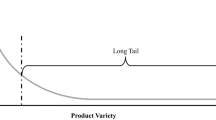Abstract
The production of large-dimensioned, customer specific goods like machinery, investment goods, and special vehicles is a demanding challenge because of the integration of numerous customer specific features and the need for short delivery times. In addition, complex assembly operations require highly skilled workers to ensure the flexibility of production, which is needed to cope with varying workloads and assembly procedures. The presented paper introduces a concept for planning and controlling the production of those products, with a focus on personal allocation and assembly order development. After giving a brief problem statement, which highlights the major aspects to be considered, an overview of the literature, which copes with comparable problems, is given. The following sections introduce three means of control used in the concept and present a computational investigation of these under varying settings concerning hindering effects in assembly operations. The paper is closed by a discussion of the achieved results and a brief summary.
Access this chapter
Tax calculation will be finalised at checkout
Purchases are for personal use only
Similar content being viewed by others
References
Ernst AT, Jiang H, Krishnamoorthy M, Sier D (2004) Staff scheduling and rostering: a review of applications, methods and models. Eur J Oper Res 153(1):3–27
Boysen N (2006) Production planning in mixed-model assembly lines (Produktionsplanung bei Variantenfließfertigung). In: Waldmann K-H, Stocker UM (eds) Operations research proceedings 2006, Springer, Berlin-Heidelberg, pp 11–15
Taiichi O (1988) Toyota production system: beyond large-scale production. Productivity Press, Cambridge (Mass)
Boysen N, Fliedner M, Scholl A (2006) Level-scheduling in mixed-model assembly lines (Level-Scheduling bei Variantenfließfertigung: Klassifikation, Literaturüberblick und Modellkritik), Jenaer Schriften zur Wirtschaftswissenschaft, Vol 26/2006
Solnon C, Cung VD, Nguyen A, Artigues C (2008) The car sequencing problem: overview of state-of-the-art methods and industrial case-study of the ROADEF’2005 challenge problem. Eur J Oper Res 191(3):912–927
Scholl A (1999) Balancing and sequencing of assembly lines, 2nd edn. Physica, Heidelberg
Boysen N, Fliedner M, Scholl A (2007) A classification of assembly line balancing problems. Eur J Oper Res 183(2):674–693
Cevikan E, Durmusoglu MB, Unal ME (2009) A team-oriented design methodology for mixed model assembly systems. Comput Ind Eng 56(2):576–599
Özcan U, Toklu B (2009) Balancing of mixed-model two-sided assembly lines. Comput Ind Eng 57(1):217–227
Lee TO, Kim Y, Kim YK (2001) Two-sided assembly line balancing to maximize work relatedness and slackness. Comput Ind Eng 40(3):273–292
Håkansson J, Skoog E, Eriksson KM (2008) A review of assembly line balancing and sequencing including line layouts. In: Proceeding of PLANs forsknings- och tillämpningskonferens, pp 69–84
Dimitriadis SG (2006) Assembly line balancing and group working: a heuristic procedure for workers’ groups operating on the same product and workstation. Comput Oper Res 22(9):2757–2774
Chang H-J, Chan T-M (2010) Simultaneous perspective-based mixed-model assembly line balancing problem. Tamkang J Sci Eng 13(3):327–336
Bartholdi JJ, Eisenstein DD (1996) A production line that balances itself. Oper Res 44:21–34
Armbruster D, Gel ES, Murakami J (2007) Bucket brigades with worker learning. Eur J Oper Res 176:264–274
Tracht K, Funke L, Joppien T (2011) Decentralised resource allocation in paced assembly processes. In: 21st International conference on production research (ICPR 21), 31 July–4 Aug, Stuttgart
Tracht K, Funke L (2011) Order-related Shift Planning in Assembly (Auftragsorientierte Schichtplanung in der Montage), wt-online, 101(9):591–594
Tracht K, Funke L (2012) Resource allocation in manual assembly (Ressourcenallokation in der manuellen Montage), wt-online, 102(9):564–567
Fontaine C, Dajoz I, Meriguet J, Loreau M (2006) Functional diversity of plant-pollinator interaction webs enhances the persistence of plant communities. PLoS Biol 4(1):129–135
Author information
Authors and Affiliations
Corresponding author
Editor information
Editors and Affiliations
Rights and permissions
Copyright information
© 2013 Springer International Publishing Switzerland
About this paper
Cite this paper
Tracht, K., Funke, L. (2013). Resource Allocation in the Paced Assembly of Customer Specific Goods. In: Azevedo, A. (eds) Advances in Sustainable and Competitive Manufacturing Systems. Lecture Notes in Mechanical Engineering. Springer, Heidelberg. https://doi.org/10.1007/978-3-319-00557-7_90
Download citation
DOI: https://doi.org/10.1007/978-3-319-00557-7_90
Published:
Publisher Name: Springer, Heidelberg
Print ISBN: 978-3-319-00556-0
Online ISBN: 978-3-319-00557-7
eBook Packages: EngineeringEngineering (R0)




